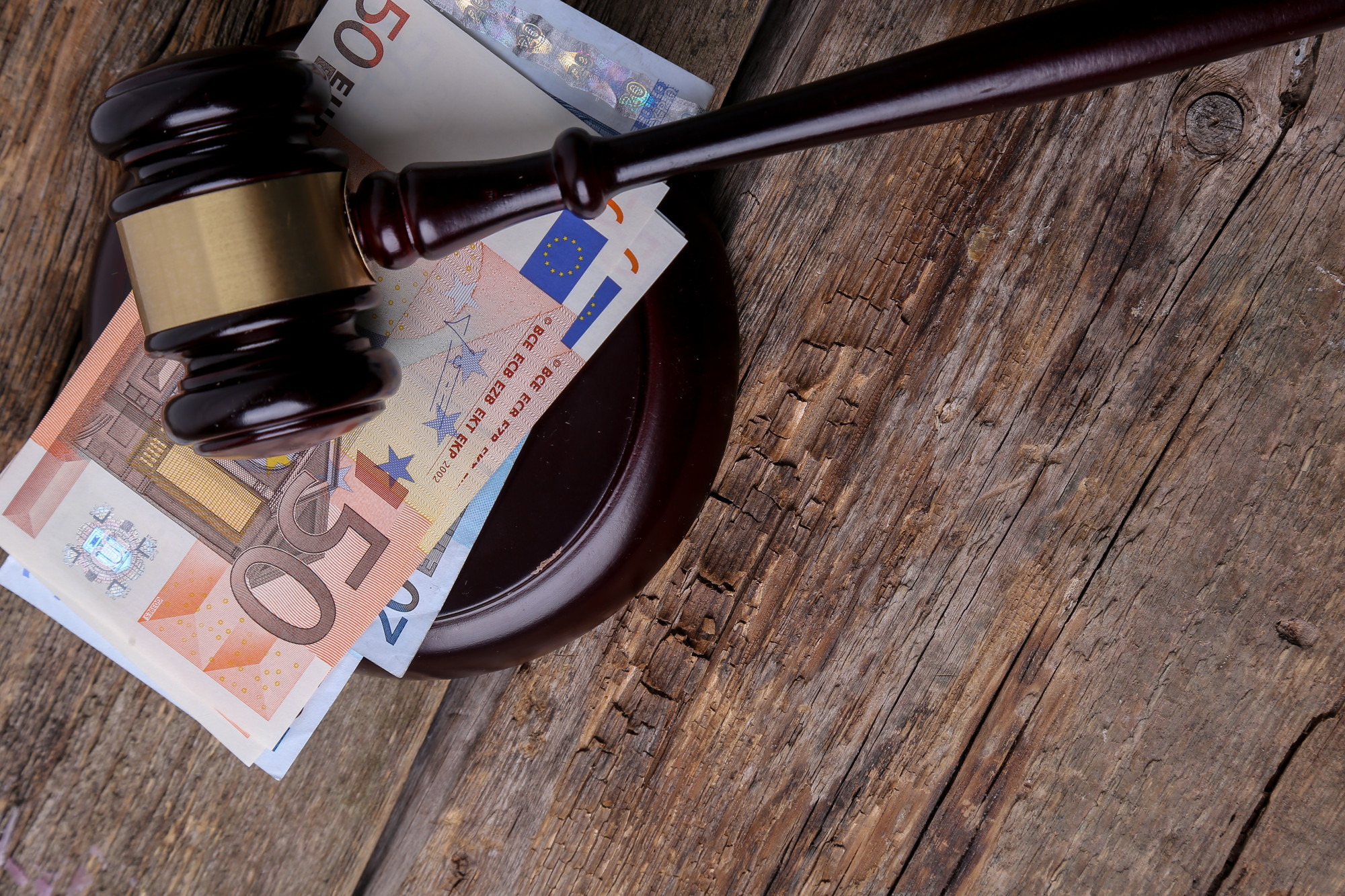Fight against corruption "Compliance control" system management department

REGULATION of the Samarkand Institute of Economics and Service on the Management Department of the Anti-Corruption "Compliance Control" System
I. General rules
1. This Regulation defines the status, main tasks, functions, rights, responsibility, organization of activities, functional tasks and responsibilities of the department of management of the "Compliance control" system of combating corruption (hereinafter referred to as the department).
2. The department is a structural unit of the institute.
3. The activity of the department is directed to the management of the "Compliance control" system in the institute, as well as anti-corruption activities. Within its powers, it is directly subordinated to the rector of the institute and to the department of compliance control and anti-corruption of the Ministry of Higher and Secondary Special Education (hereinafter - the Ministry). reports.
4. In its activities, the department complies with the Constitution and laws of the Republic of Uzbekistan, decisions of the Oliy Majlis of the Republic of Uzbekistan, decrees, decisions and orders of the President of the Republic of Uzbekistan, decisions and orders of the Cabinet of Ministers of the Republic of Uzbekistan, ministerial orders and decisions of the Board, this Regulation, internal orders of the institute, as well as other laws complies with the documents.
5. The department performs its activities in cooperation with other departments of the institute. II. Tasks and functions of the department
6. The following are the main tasks of the department: preventing and combating corruption offenses in the institution; ensuring the implementation of measures aimed at the implementation of the "Corruption-free sphere" project at the level of the institution in the higher education system; introduction and implementation of the "Compliance control" system to combat corruption in the institution; to determine the areas with high risks of corruption in the institution and the reasons and conditions for the commission of corruption offenses; providing information about systemic problems that lead to manifestations of corruption in the institution and making appropriate proposals for their elimination; ensuring the implementation of programs aimed at eliminating the causes and conditions of corruption-related offenses and increasing the effectiveness of anti-corruption measures at the institute; coordinating public control aimed at fighting corruption in the institute, as well as anti-corruption monitoring based on modern methods and information and communication technologies; study generally recognized international standards and positive foreign experience in the field of combating corruption and public control, and develop proposals for the implementation of advanced aspects; organization of sociological, scientific and other research and development of proposals regarding the situation, trends and causes of corruption in the institution and the effectiveness of anti-corruption measures; coordination of activities of academic license and technical institutions of the institute in the direction of fight against corruption.
7. The department performs the following functions in order to fulfill the tasks assigned to it: supervises compliance with the laws and legal documents related to the fight against corruption in the institute, as well as the decisions and orders of the Council of Ministers; develops measures and work plans aimed at preventing corruption offenses, ensures their full, high-quality and timely execution, studies the state of implementation of the specified measures, prepares information on the results; implements the "Corruption-free sphere" project at the institute; develops drafts of internal documents aimed at implementing anti-corruption measures at the institute and submits them to the rector for approval; develops proposals for eliminating corruption norms identified in the internal documents of the institute; assesses corruption risks in the institution and measures to reduce them
develops plans; considers complaints and anonymous messages about corruption risks and violations in the behavior of professors and teachers, management, technical, service and teaching staff of the institute and takes measures in accordance with the established procedure; keeps a register of service investigations on the facts of corruption in the institute; participates in the analysis of conflicts of interest and checks the reliability of counterparties in the implementation of public procurement; monitors conflicts of interest among institute employees and makes appropriate proposals; regularly organizes preventive talks between professors and teachers of the institute, management, technical, service, educational support staff; conducts surveys among professors, teachers, management, technical, service, teaching and support staff, students (masters, doctoral students, independent researchers) and the population in order to identify corruption cases in the activity of the institute; regularly evaluates the results and impact of anti-corruption advocacy measures based on surveys, social and other research, and uses the evaluation results to determine further measures; organizes conferences, meetings, seminars, contests aimed at fighting corruption among professors and teachers, students and youth; evaluates the effectiveness of the measures taken in the field of combating corruption in the institution; investigates the conditions and reasons for committing corruption offenses in the institution, as well as develops proposals for their elimination; ensures regular updating of information in the "Combating Corruption" section on the institute's official website; every quarter and as necessary reports on the anti-corruption activities and the corruption situation in the institution to the rector and the Department of Compliance Control and Anti-Corruption of the Ministry of Higher and Secondary Special Education; establishes effective cooperation in the field of combating corruption with the Department of Compliance Control and Combating Corruption of the Ministry of Higher and Secondary Special Education and other state bodies and organizations engaged in combating corruption, as well as with parents; supervises the anti-corruption activities of the academic lyceum under the institute; monitors anti-corruption activities in the institute, submits analytical materials to the management and the ministry. III. Rights and Responsibilities of the Department
8. The department has the following rights to carry out the tasks and functions assigned to it: admission to work at the institute and its academic lyceum, attestation of employees, examinations of students (master's, doctoral students, independent candidates) (final, intermediate, qualifying, final state attestation) , diploma protection) to monitor the processes directly or through video transmission, to identify corruption risks in these processes; to request, demand and receive analytical materials, conclusions, primary and other supporting documents, statistical and other information from the professors, teachers, management, technical, service and educational support staff of the institute and the academic lyceum under its jurisdiction; to request and receive the necessary assistance from the employees of the institute within the framework of the performance of service obligations, to organize working groups in necessary cases; participation in the meetings of the Board of the institute; making proposals to the rector of the institute on the issues of compliance control and fighting against corruption; conducting inspections within the scope of authority, requesting documents, receiving written explanations from the institute's professors, management, technical, service and support staff, students (masters, doctoral students, independent researchers), reporting to relevant law enforcement bodies in cases where signs of crime are detected; to give instructions and recommendations to the constituent units of the institute within the framework of their activities; The Department may also have other rights in accordance with the legislation.
Department: proper and effective performance of assigned duties; fulfillment of the functions assigned to him and fulfillment of the requirements for ensuring executive discipline; ensuring that materials and documents for providing information to the management of the institute are completed within the specified time; the state of work being carried out in the institute on compliance control and anti-corruption activities; is responsible for the timely review and resolution of appeals of individuals and legal entities on the basis of legal documents. IV. Department structure
10. The structure of the department includes the head of the department and the chief specialist.
11. The department is headed by the head. In order to ensure the independence of the department, the head of the department reports directly to the rector of the institute and the chief specialist of the department to the head of the department.
12. The head of the department is appointed and dismissed according to the order of the rector of the institute, in agreement with the ministries and departments under the authority of the institute. 13. The head specialist of the department is appointed and dismissed in accordance with the order of the rector of the institute. V. The main functional duties of the head of the department and the chief specialist
14. The main functional tasks of the head of the department are as follows: he leads the department in general, organizes the work of the department, is fully responsible for the execution of the tasks and functions assigned to the department and the execution discipline; supervises compliance with anti-corruption laws and regulations in the institute; develops measures and work plans aimed at preventing corruption offenses, ensures their complete, high-quality and timely execution; organizes work aimed at the implementation of the "Corruption-free sphere" project in a higher educational institution; prepares analytical materials on the fight against corruption based on the study of advanced foreign experiences; establishes effective cooperation with civil society institutions, law enforcement and control bodies, parents in the field of fighting corruption; compliance includes training and professional development of persons responsible for control and fight against corruption; monitors the work done to prevent corruption in the institute, submits analytical materials to the management; develops documents on issues related to the department's activities, as well as ensures review of submitted draft documents and prepares proposals; is included in the Council of the institute and participates in meetings; develops and ensures the implementation of measures for the further improvement of the work of the department; considers the appeals of individuals and legal entities related to the department's activities and fully complies with the executive discipline; performs other functional tasks within the scope of his authority in accordance with legal documents.
15. The main functional duties of the chief specialist are as follows: organizes meetings with the institute's teaching staff, students and young people, as well as individuals and legal entities, and studies the systemic problems facing them, areas with high risks of corruption in the institute, and the reasons and conditions for the commission of corruption-related offenses. determines the conditions; participates in involving experts in anti-corruption studies, inspections, analyses, and developed proposals; organizes the creation of anti-corruption educational and methodical materials, including audio-video clips, photos, booklets and brochures; organizes sociological, scientific and other surveys on the state, trends and causes of corruption in the institution, as well as the effectiveness of anti-corruption measures; in the absence of the head of the department, the chief specialist coordinates the activities; performs other functional tasks within the scope of authority in accordance with legal documents. VI. Organization of department activities
16. The department carries out its activities on the basis of legal documents related to the field, orders of relevant ministries and agencies, decisions of the Board, decisions and orders of the Council of the institute, this Regulation and the work plan of the Department.
17. Decisions of the Institute's Council, Rector's orders and tender documents must be coordinated with the department.
18. The work plan of the department is a component of the work plan of the institute and is approved by the rector of the institute.
VII. The final rule
19. Reorganization and termination of department activities shall be carried out in accordance with the procedure established by law.

 Oʼzbekcha
Oʼzbekcha
 English
English
 русский
русский
